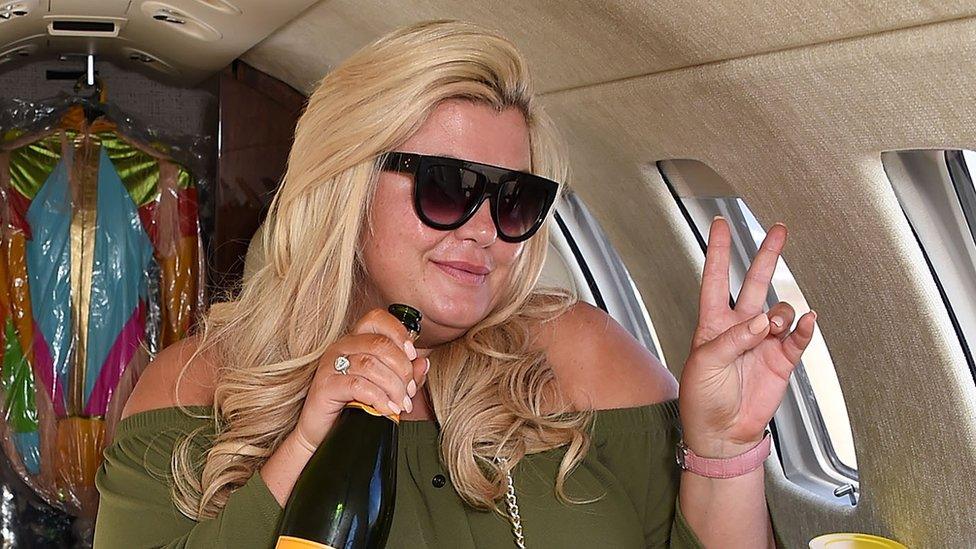Suffolk alcohol producers ‘can’t absorb’ new tax rise
- Published
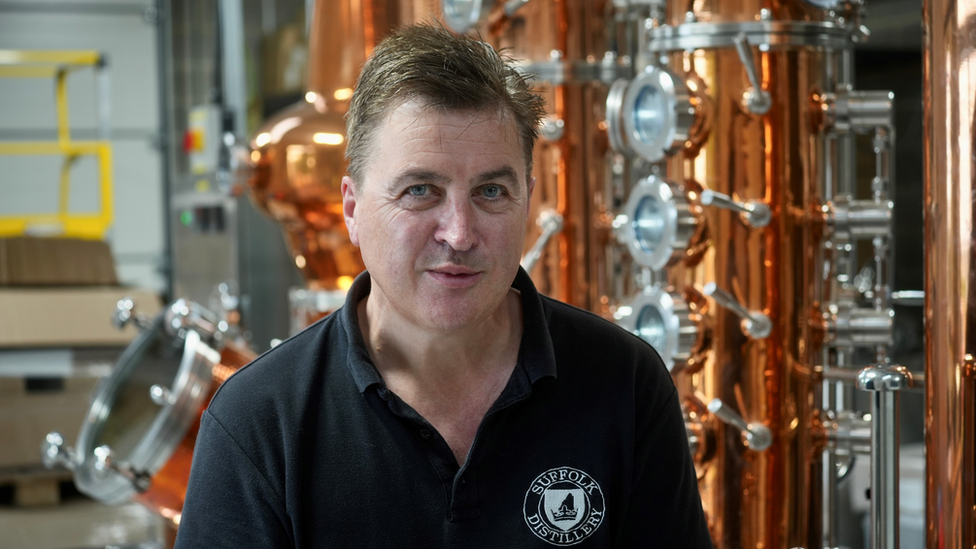
Gary Wilkinson is worried his customers will opt for "mass produced" gin as his prices go up
Wine and gin companies in Suffolk said the change to alcohol duty would force them to increase their prices.
Artisan producers have said they "can't absorb" the extra cost and will have to pass it on to customers.
They said they hoped people would continue to buy their specialist products, but worry the hike will drive them to cheaper, mass-produced options.
Under what the Treasury says are new "common-sense" principles, tax is being levied according to a drink's strength.
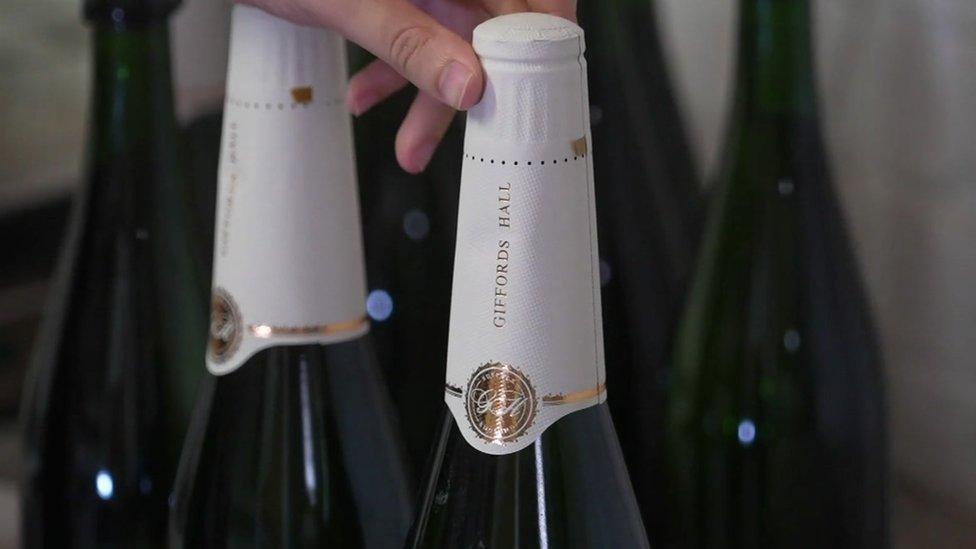
Prices of a bottle of wine at Gifford's Hall Vineyard in Hartest, near Bury St Edmunds, are expected to go up by 45p
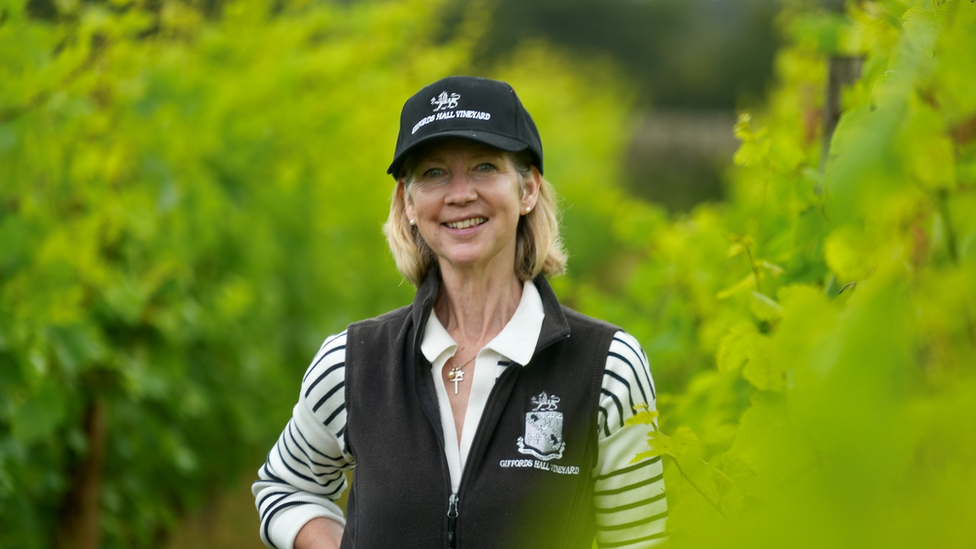
Vineyard owner Linda Howard said wine producers cannot control the level of alcohol in the drink
Linda Howard, who owns and runs Gifford's Hall Vineyard in Hartest, near Bury St Edmunds, said they will charge roughly 45p more per bottle of wine.
"We cannot absorb this cost because we have had rising costs for the last two years," she told the BBC.
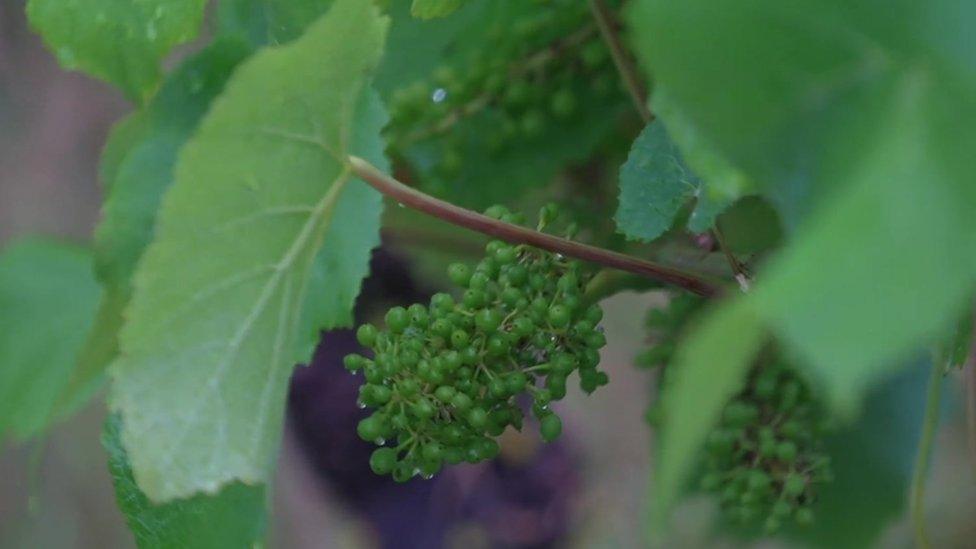
The weather affects the grape harvest and alcohol content of wine
She said, unlike beer and gin makers, wine producers cannot control the level of alcohol in the drink.
"That will be God and the weather, that will be sunlight. If we have a very hot summer, we will have more alcohol content in our wine and therefore more tax," she said.
Ms Howard said she hoped "loyal customers" would stick with them, but added: "I can see that if people are worried about the cost of living and mortgages, they might decide to go for a cheaper option."
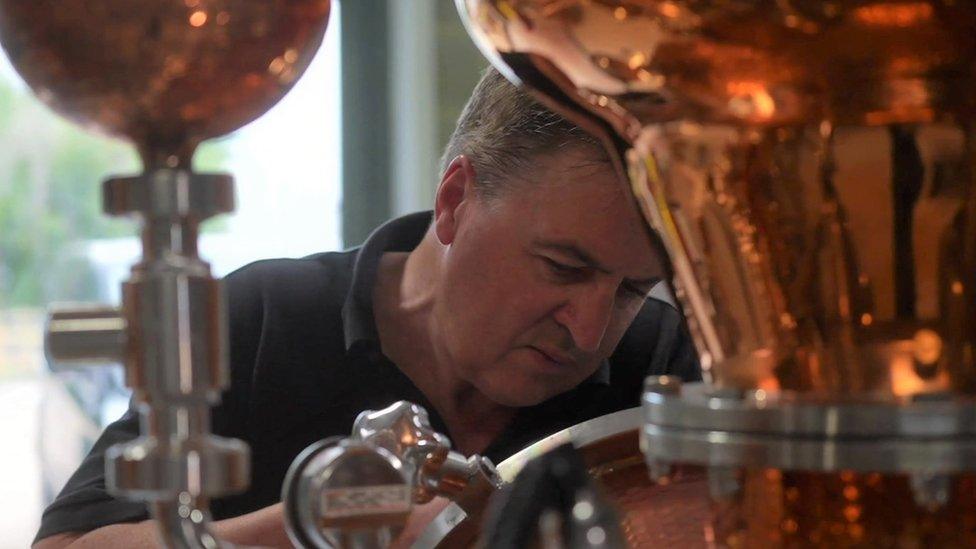
Gary Wilkinson makes craft gin and vodka at the Suffolk Distillery
Gary Wilkinson, the manager of Suffolk Distillery, external, said the tax change would likely add £1 to a bottle of gin, which is typically 43% alcohol.
"I think people will be put off and will go for cheaper in-store [drinks]," he said.
He said he did not accept the government's view the changes would help to simplify a complex system, which previously had four separate taxes covering beer, cider, spirits, wine and made-wine.
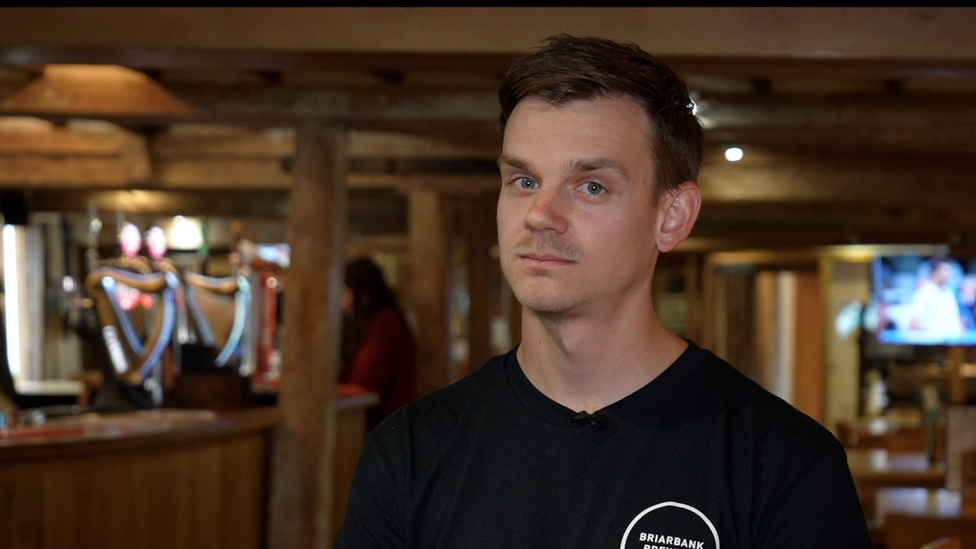
Tristan Finbow said some breweries were already reducing their alcohol content
Meanwhile, Tristan Finbow, business development manager at Isaacs pub in Ipswich, said the changes would not make a "huge difference".
He said the business would "absorb a bit of the cost" but eventually it would be passed on to customers.
Alcohol duties have been frozen since 2020. These changes were originally scheduled for February this year but were postponed by Chancellor Jeremy Hunt as the cost-of-living crisis continued.
The chancellor said the changes reflected the "popularity of low-alcohol drinks" and boosted growth in the sector.

Find BBC News: East of England on Facebook, external, Instagram, external and Twitter, external. If you have a story suggestion email eastofenglandnews@bbc.co.uk, external
Related topics
- Published1 August 2023

- Published25 May 2023
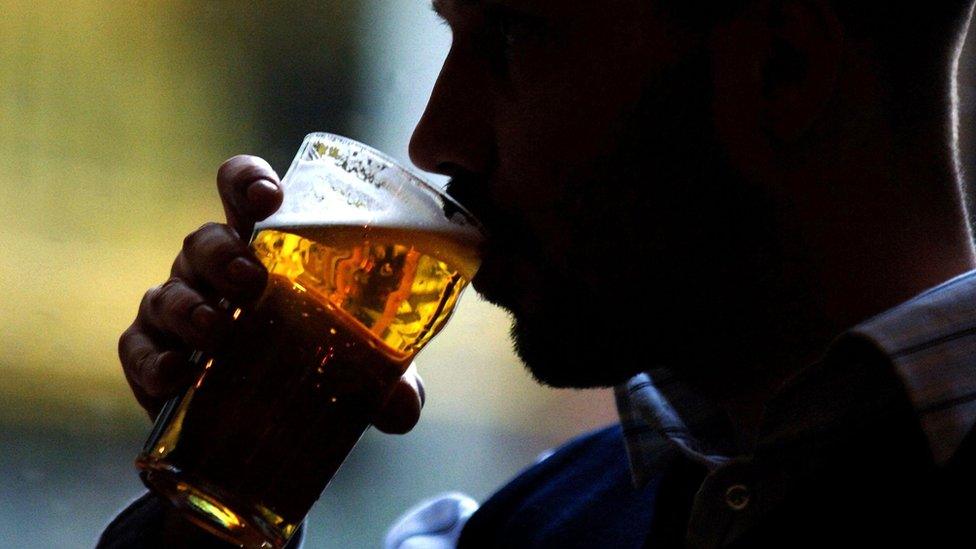
- Published9 November 2018
